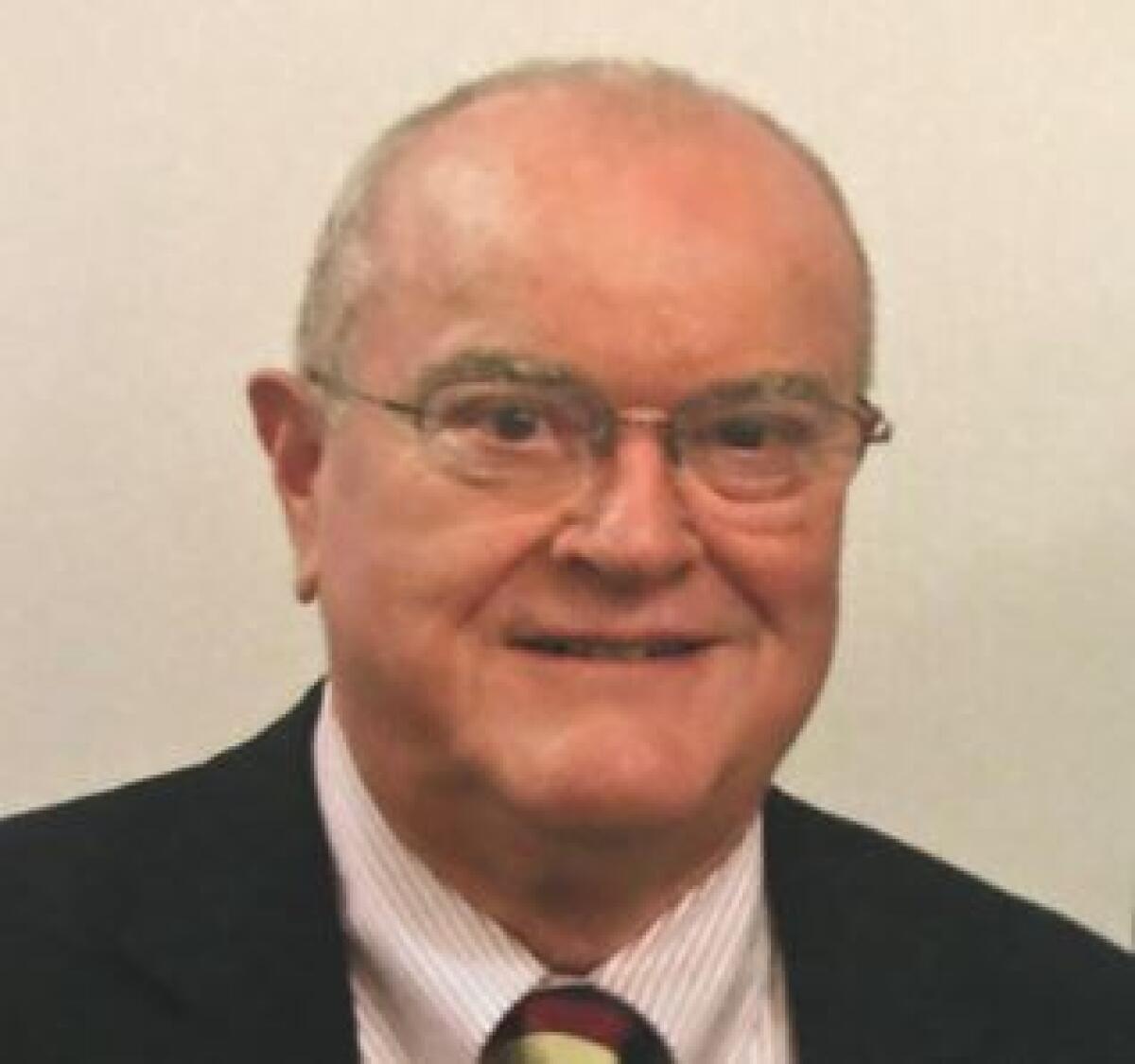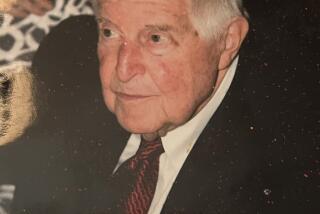Richard Van Horn, Episcopal priest who revolutionized California’s approach to mental illness, dies at 81

Richard Van Horn, the Episcopal priest who helped revolutionize California’s approach to mental illness and became a dogged and skillful advocate for mentally ill people, has died at his home in Los Angeles.
Van Horn died June 15 at age 81, said his stepson Mark Slavkin.
For more than 30 years, Van Horn played a leadership role in efforts to improve the lot of people with mental illness. (He preferred the term “consumers” to “patients” or “mentally ill.”) He oversaw the development of recovery-focused programs — considered radical at the time but which have become models throughout the U.S. and in other countries. He worked with state legislators to pass a series of measures and was a major force behind the creation of the California Mental Health Services Act, approved as Proposition 63 by voters in 2004.
“It would be impossible to overstate the enormous positive impact that Richard has had on the public mental health system in California and, by extension, the entire country,” said David Pilon, a psychologist who worked with Van Horn to establish the Village Integrated Services Agency, a pioneering program in Long Beach in 1990.
“He was the point person for the movement to help the most vulnerable among us — people with severe mental illness — to be welcomed into and achieve inclusion in our communities,” Pilon said.
Sacramento Mayor Darrell Steinberg, as a Democratic state legislator in the 1990s and early 2000s, worked closely with Van Horn to create and pass several important mental health reform and funding bills, and later Proposition 63.
“He was a very sweet person, but he was tough,” Steinberg recalled in a recent interview. “His work was really about seeing every human being as unique, special and worth helping. He pushed very, very hard, and thank God for that!”
Van Horn was born in Arcadia on Sept. 24, 1939, to Harlan, a banker, and Evelyn Van Horn, a teacher who quit her job to stay home with her son and, later, a daughter. His father died when Richard was 16 and his mother went back to work to support the family. His childhood asthma prevented him from being as active as other boys, but he did well in school. He was baptized in the Episcopal Church during his senior year at Arcadia High School, and after his 1957 graduation he entered Harvard.
He had wanted to become a lawyer but grew more involved in the church during college and began thinking of the priesthood as the best way to be of service to others. After graduating from Harvard, he spent a year in Japan teaching English as part of an Episcopal mission, then returned to the U.S. to enter seminary. He was ordained in 1965 but soon found out he “was not really cut out” to be a parish priest, Van Horn recalled a few years ago in an oral history interview with UCLA’s Semel Institute.
Van Horn joined the bishop’s staff and soon became a volunteer with the agency that would provide the framework for his life’s work, the Mental Health Assn., now known as Mental Health America of Los Angeles. He joined the agency’s board in 1976 and in 1980 became its top executive, a post he held for nearly 30 years. After retirement, he served on its board.
As chief executive, Van Horn brought together patients, their families, mental health professionals and advocates to form a powerful voice. He brought 5,000 people to the state Capitol in buses in the mid-1980s when Gov. George Deukmejian sought deep cuts in state mental health funds.
For the oral history project, Van Horn recounted a conversation he had with the Los Angeles County chief administrative officer, who was asking the board of supervisors to slash mental health services to help balance the budget. Both men knew Van Horn could “fill the board room on 24 hours notice” with protesters, making the elected supervisors look bad in news coverage.
“I just sat down with [him] and said, ‘Look, we are going to be here every week until this thing gets settled, so why don’t we have a deal? You won’t try cuts in mental health, and we won’t flood the boardroom and embarrass everybody.’”
They reached a deal that largely spared mental health services.
Mental Health America of Los Angeles also sponsored innovations aimed at providing integrated services and helping clients gain as much control over their lives as their illness allowed. Project Return and other programs were employed by the Village Integrated Services Agency, which provided a sort of one-stop shopping experience that soon became the model for programs across California and around the world.
Van Horn “pioneered the recovery model of providing mental health services, widely used across the country today,” Christina Miller, the organization’s current president and CEO, said in a statement.
“He truly was an amazing leader in many ways,” said psychiatrist Mark Ragins, who was medical director at the Village from 1990 to 2017. “I honestly don’t think there would’ve been a Proposition 63/Mental Health Services Act without him.”
Van Horn married Kay Slavkin in 1986, the second marriage for both. They met while she was serving on a county mental health advisory board. He continued to serve at his church, St. Mary’s, and sometimes officiated at baptisms, funerals and wedding ceremonies — including his stepgranddaughter Samantha’s nuptials.
He continued to advise on mental health advocacy issues almost until his death, said Mark Slavkin, a former Los Angeles school board member.
“He was a unique combination of moral authority, policy expertise and political savvy,” Slavkin said.
Van Horn is survived by his wife; son Kinter Van Horn; stepsons Mark and Todd Slavkin; grandchildren Skyler, Aidan, Kylia and Aysa; stepgrandchildren Max, Samantha, Eli, Maya and Cameron; and a stepgreat-grandson, Noah.
Merl is a former Times staff writer.
More to Read
Start your day right
Sign up for Essential California for the L.A. Times biggest news, features and recommendations in your inbox six days a week.
You may occasionally receive promotional content from the Los Angeles Times.






